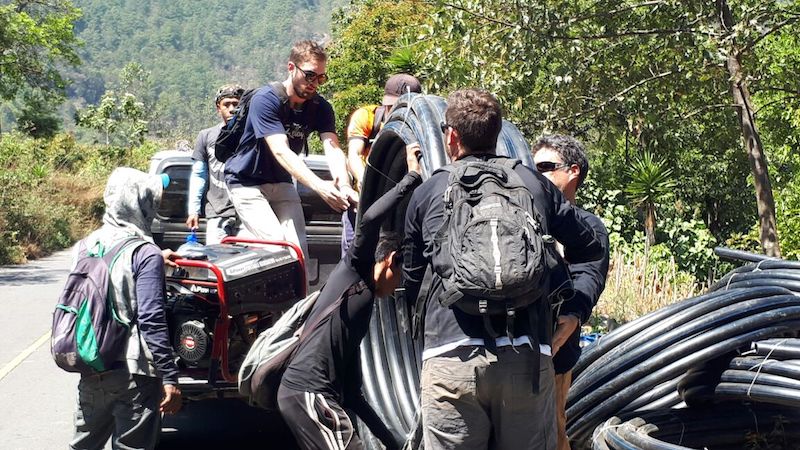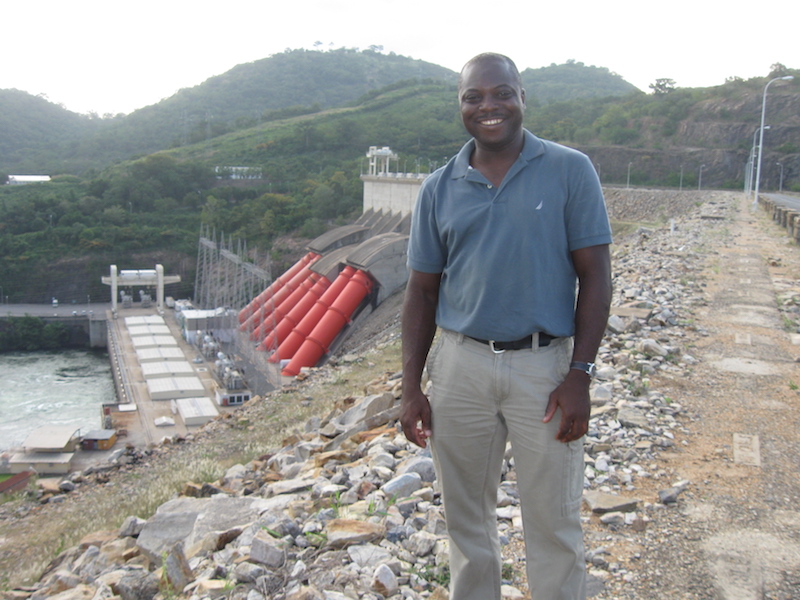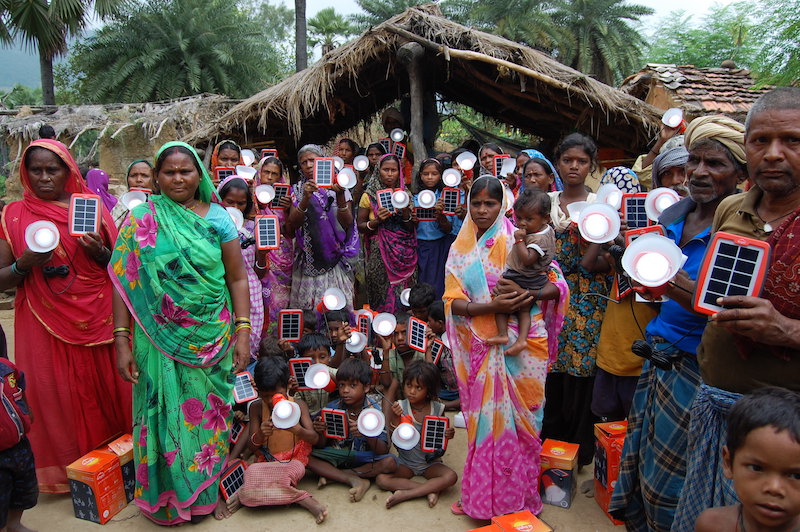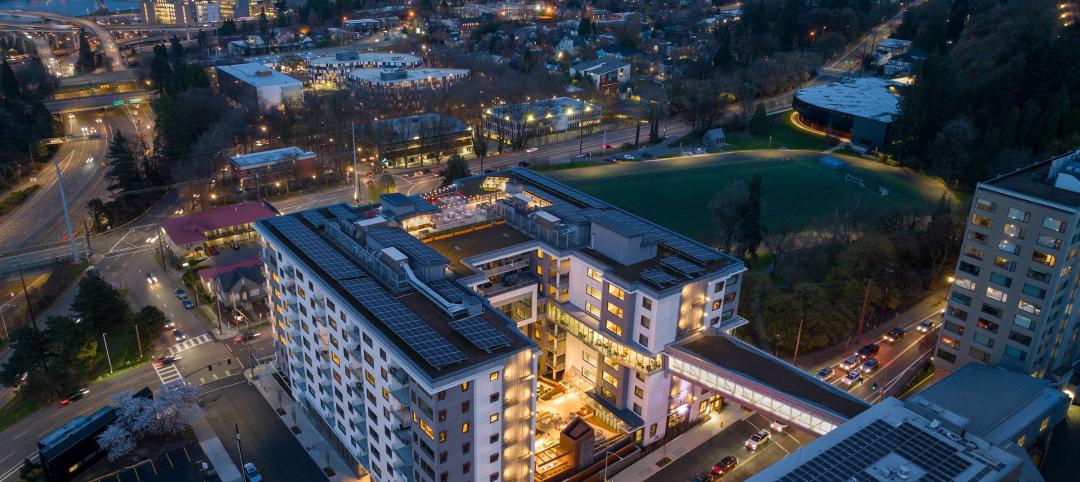AEC firms always talk about how they want their work to “change the world.” One firm, AECOM, is taking corporate responsibility to another level by providing financial support that empowers its employees to tackle humanitarian, environmental, and infrastructure challenges around the world.
AECOM’s inaugural Blueprint Travel Grant program, which it launched last month, awarded 25 grants to support projects that range from the installation of solar-powered water purification systems, to the design and construction of educational facilities in rural communities. This impact initiative spans 15 countries, with the purpose of bringing lasting, scalable solutions to communities and people in need.
The countries include Cambodia, China, Ecuador, El Salvador, Ghana, Guatemala, India, Kenya, Malaysia, Nepal, Panama, Philippines, Tanzania, Thailand, and Uganda.
While AECOM did not disclose its financial commitment to this program, it did state that it is making donations directly to nonprofit partners, for specific campaigns or projects, “to champion our employees’ participation in a skills-based volunteer trip service,” says Brendan Ranson-Walsh, the firm’s Vice President of Global Communications and Corporate Responsibility.
Responding by email to BD+C’s questions, Ranson-Walsh says that this program is the “cornerstone” of AECOM’s corporate responsibility platform Blueprint for a Better World, which has three core pillars: opening doors, creating opportunity, and protecting tomorrow.

AECOM employees help load a section of pipe for transport to the work site in the nearby mountains in Chacayá, Guatemala, a small, Mayan village where coffee farming is the predominant industry. Weighing over 120 pounds each, the 100-meter rolls of pipe presented a significant challenge in hauling them up the steep mountain trail for installation. The community organized teams of 20 people to haul and install three-four rolls per day. Image: AECOM
Examples of the projects that AECOM’s employees are engaging, with the firm’s support, include:
•A team that’s partnering with Engineers Without Borders USA to design, engineer, plan, and construct a vehicular and pedestrian bridge for a Mayan community in Chimaltenango, Guatemala. The bridge would provide better access to the community, lower transportations costs, and improve medical response time for more than 1,200 residents.
•A team from 10 of AECOM’s offices in three countries is working with Building Humanity to construct a bakery for the Felix Family Village in Surat Thani, Thailand. That village supports orphaned and abandoned children, including those who have lost parents to HIV/AIDS. The bakery will provide food and extra income to the orphanage.
•Two AECOM employees are partnering with Engineers Without Borders Kenya to design and construct safe ecological sanitation facilities at the Inchuni Primary School in Kisii County, Kenya. The new facilities will address the school’s substandard and unhygienic sanitation infrastructure, and prevent the displacement of more than 500 students and faculty members.
“Through the transformational projects they deliver, our people are the driving force behind AECOM’s positive impact in communities around the world,” says Mike Burke, the firm’s Chairman and CEO.

Edmund “Eddie” Doku, Project Engineer II, Design & Consulting Services, at a water and sanitation project in Ghana. Eddie has been volunteering with Engineers Without Borders USA since 2011. Image: AECOM
Related Stories
Retail Centers | May 3, 2024
Outside Las Vegas, two unused office buildings will be turned into an open-air retail development
In Henderson, Nev., a city roughly 15 miles southeast of Las Vegas, 100,000 sf of unused office space will be turned into an open-air retail development called The Cliff. The $30 million adaptive reuse development will convert the site’s two office buildings into a destination for retail stores, chef-driven restaurants, and community entertainment.
Codes and Standards | May 3, 2024
New York City considering bill to prevent building collapses
The New York City Council is considering a proposed law with the goal of preventing building collapses. The Billingsley Structural Integrity Act is a response to the collapse of 1915 Billingsley Terrace in the Bronx last December.
K-12 Schools | Apr 30, 2024
Fully electric Oregon elementary school aims for resilience with microgrid design
The River Grove Elementary School in Oregon was designed for net-zero carbon and resiliency to seismic events, storms, and wildfire. The roughly 82,000-sf school in a Portland suburb will feature a microgrid—a small-scale power grid that operates independently from the area’s electric grid.
AEC Tech | Apr 30, 2024
Lack of organizational readiness is biggest hurdle to artificial intelligence adoption
Managers of companies in the industrial sector, including construction, have bought the hype of artificial intelligence (AI) as a transformative technology, but their organizations are not ready to realize its promise, according to research from IFS, a global cloud enterprise software company. An IFS survey of 1,700 senior decision-makers found that 84% of executives anticipate massive organizational benefits from AI.
Codes and Standards | Apr 30, 2024
Updated document details methods of testing fenestration for exterior walls
The Fenestration and Glazing Industry Alliance (FGIA) updated a document serving a recommended practice for determining test methodology for laboratory and field testing of exterior wall systems. The document pertains to products covered by an AAMA standard such as curtain walls, storefronts, window walls, and sloped glazing. AAMA 501-24, Methods of Test for Exterior Walls was last updated in 2015.
MFPRO+ News | Apr 29, 2024
World’s largest 3D printer could create entire neighborhoods
The University of Maine recently unveiled the world’s largest 3D printer said to be able to create entire neighborhoods. The machine is four times larger than a preceding model that was first tested in 2019. The older model was used to create a 600 sf single-family home made of recyclable wood fiber and bio-resin materials.
AEC Innovators | Apr 26, 2024
National Institute of Building Sciences announces Building Innovation 2024 schedule
The National Institute of Building Sciences is hosting its annual Building Innovation conference, May 22-24 at the Capital Hilton in Washington, D.C. BI2024 brings together everyone who impacts the built environment: government agencies, contractors, the private sector, architects, scientists, and more.
Mass Timber | Apr 25, 2024
Bjarke Ingels Group designs a mass timber cube structure for the University of Kansas
Bjarke Ingels Group (BIG) and executive architect BNIM have unveiled their design for a new mass timber cube structure called the Makers’ KUbe for the University of Kansas School of Architecture & Design. A six-story, 50,000-sf building for learning and collaboration, the light-filled KUbe will house studio and teaching space, 3D-printing and robotic labs, and a ground-level cafe, all organized around a central core.
Sports and Recreational Facilities | Apr 25, 2024
How pools can positively affect communities
Clark Nexsen senior architects Jennifer Heintz and Dorothea Schulz discuss how pools can create jobs, break down barriers, and create opportunities within communities.
Senior Living Design | Apr 24, 2024
Nation's largest Passive House senior living facility completed in Portland, Ore.
Construction of Parkview, a high-rise expansion of a Continuing Care Retirement Community (CCRC) in Portland, Ore., completed recently. The senior living facility is touted as the largest Passive House structure on the West Coast, and the largest Passive House senior living building in the country.

















